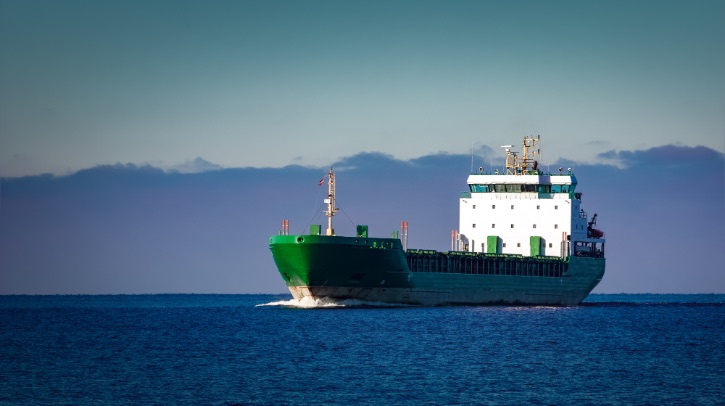Working with the governments of Bahamas and Liberia, the International Chamber of Shipping (ICS) has presented a comprehensive new proposal to ensure delivery of the UN International Maritime Organization’s (IMO) ambitious target to achieve net-zero greenhouse gas (GHG) emissions from international shipping by or around 2050.
The latest proposal from Bahamas, Liberia and ICS will be discussed at the next round of IMO negotiations, which resume in London on September 23, to develop a new package of mid-term GHG reduction regulations for international shipping, for adoption by governments in 2025.
Greenhouse gas fee
At the heart of the proposal is a GHG Fee, charged to ships per metric ton of CO2 equivalent (CO2e) emitted, combined with a “feebate” mechanism to incentivize the accelerated production and uptake of zero/near-zero GHG marine fuels, such as green ammonia, hydrogen and methanol, sustainable biofuels, and new technologies such as onboard carbon capture.
While the principal purpose of the proposed maritime GHG pricing mechanism is to narrow the significant cost gap with conventional marine fuels, around US$2.5bn per year would also be allocated to an “IMO Net Zero Shipping Fund” to support maritime GHG reduction efforts in developing countries. This is to help ensure that shipping’s transition to net zero will be truly global and that green fuels will be available in all ports worldwide.
ICS has stated that it takes no view on the quantum of what the GHG Fee should be, which would depend on the reward rate agreed per metric ton of GHG emissions prevented by the use, by ships, of zero/near-zero GHG energy sources. However, if, for the first five years of implementation, IMO sets the reward rate at about US$100 per metric ton of CO2e prevented (including upstream emissions), the proposal suggests that a GHG Fee initially equivalent to about US$60 per metric ton of conventional fuel oil consumed by ships could be sufficient to achieve the purposes of the measure.
The primary objective of the proposed IMO mechanism is to accelerate the production and uptake of new green marine fuels by reducing their cost disadvantage, with feebates (rewards) being disbursed to ships for the CO2e emissions prevented by not using conventional fuel oil.
Net zero fund
GHG fees will be collected, and feebates disbursed, via a web-based automated IMO mechanism, the prototype for which ICS has already developed and submitted to IMO. From the revenue generated from the GHG fee, an amount equivalent to 20% of the revenue allocated to support the feebate program will be transferred annually to the newly proposed IMO 2 Net Zero Shipping Fund, with this proportion subject to adjustment within five years of entry to force.
Guy Platten, ICS secretary general, commented, “A GHG pricing mechanism using a flat rate GHG Fee and a feebate element will be vital to bring about the rapid development and uptake of green marine fuels. To incentivize the production and use of green marine fuels, our proposal includes a carefully thought out feebate mechanism, which is fuel neutral, to incentivize prevention of up to 100 million metric tons of GHG emissions per year during the first five years. This will help de-risk investment decisions and enable shipping to rapidly reach a “take-off” point in the use of green marine fuels, something which is needed urgently as their current availability is virtually zero.
“It is time for governments ‘bite the bullet’. Unless a distinct GHG pricing mechanism and feebate program are included in the IMO regulations adopted next year, we genuinely fear that shipping’s transition to net zero by or around 2050 will be unlikely to succeed.”
Simon Bennett, ICS deputy secretary general, added, “In addition to the implications for the achievement of United Nations climate change goals, any failure to agree a flat rate GHG Fee applicable to all ships globally would also lead to a proliferation of piecemeal, unilateral GHG charges being applied to shipping worldwide – regionally and/or nationally – with regulatory chaos, economic inefficiency, the risk of supply shocks and disruption to seaborne trade, and damage to IMO’s authority as shipping’s global regulator. In the view of ICS, a maritime GHG emission pricing mechanism means all ships should contribute GHG fees equally on the basis of their actual GHG emissions, consistent with fair competition and the ‘polluter pays’ principle.”
In related news, the World Shipping Council (WSC) recently further developed the Green Balance Mechanism, a regulatory measure designed to ensure that shipping meets its net-zero goal by 2050 in an efficient, just and equitable way. Click here to read the full story.



